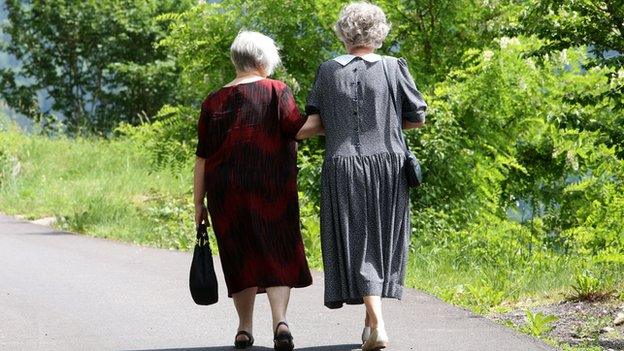'I'm 39 and have Alzheimer's disease'
- Published
- comments
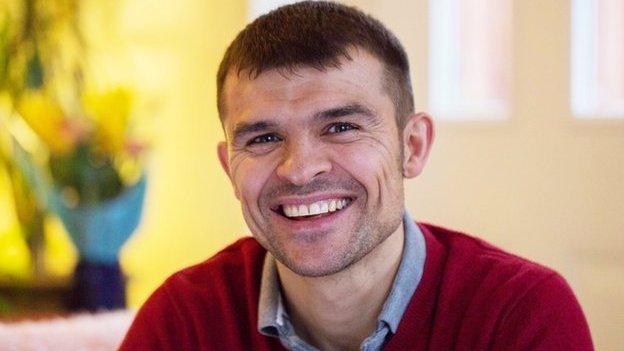
Chris Graham has inherited a gene which causes early onset Alzheimer's
To outward appearances Chris Graham is a fit and apparently healthy 39-year-old.
But the former soldier also has early onset Alzheimer's disease.
He inherited an extremely rare form of the condition from his father who died when he was aged just 42.
His brother Tony, who is four years older, is also affected and now needs round-the-clock care - he is tube-fed and unable to speak.
Chris - who had to leave the Army on medical grounds in January - is already suffering memory problems.
He told me: "Alarm bells rang for me when Tony fell ill, so I had a blood test and it confirmed I have a gene which triggers early onset Alzheimer's disease.
"It was quite a shock, but I had guessed that I was affected, because I do forget things."

Analysis
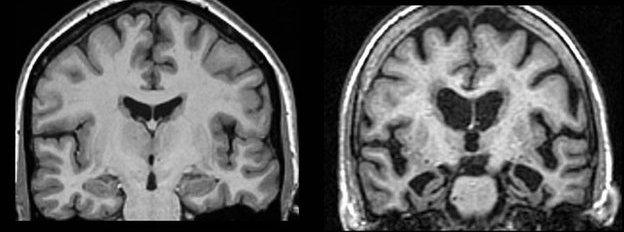
On the left an MRI scan of a healthy brain; on the right one ravaged by Alzheimer's disease
Alzheimer's disease is the most common form of dementia and symptoms usually appear in old age.
Early onset Alzheimer's occurs in people under 65 and represents fewer than 5% of people with the condition.
In a few hundred families worldwide scientists have pinpointed a few rare gene mutations which trigger the disease across many generations.
People affected tend to develop Alzheimer's in their 30s or 40s.
The gene mutation carried by Chris Graham is PSEN-1. In the film "Still Alice" the character played by Julianne Moore is also affected by this mutated gene.

'Valuable insights'
His two sisters were also tested but do not carry the gene mutation.
I met Chris and his partner Vicky at their home in Oxfordshire. The couple have a six-week-old baby son named Dexter.
Chris Graham talks to Fergus Walsh about his condition
The former soldier knows that he may have passed on the gene mutation.
He said: "Dexter has a 50:50 chance of getting it. It's not good news but I am hoping that science may find an answer.
"If we can put a man on the Moon then surely we can find a cure for Alzheimer's?"
Next month Chris will set off on a 16,000-mile, year-long bike ride around the coasts of Canada and the United States.
He's raising money , externalfor Alzheimer's Research UK and ABF The Soldiers' Charity.
In just a few hours following his story appearing on BBC television, radio and online, he had received more than 200 donations from sponsors around the world.
There are thought to be only about 400 families in the world who have familial Alzheimer's disease.
Dozens of affected families in the UK are taking part in research at the Institute of Neurology, UCL.
Prof Nick Fox, who's leading the research said: "These families provide us with rare and valuable insights into the earliest changes that occur in the brain, even before symptoms emerge.
"The thing that both I and the families would like to know is whether we can find a treatment which stops, slows or prevents the disease. At present all we can do is alleviate the symptoms."
Like others in the research group, Chris's health is being monitored by the team at UCL.
He undergoes brain scans which will track the deterioration and progression of his disease.
He also has memory tests and has undergone lumbar punctures to remove fluid which tests for the build-up of damaging proteins in his cerebrospinal fluid.
Hilary Evans, from Alzheimer's Research UK, said there was an urgent need for more investment in dementia.
She said: "For every scientist working in the field of dementia there are six or seven involved in cancer research."
She said there was still a misconception that Alzheimer's disease and dementia are an inevitable part of ageing, adding, "Chris's case highlights that this is a disease, and so we need more research to fight it."
- Published16 February 2015
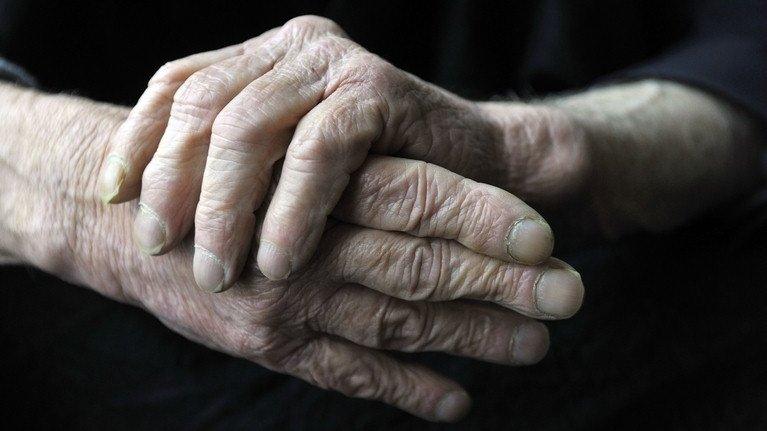
- Published8 July 2014
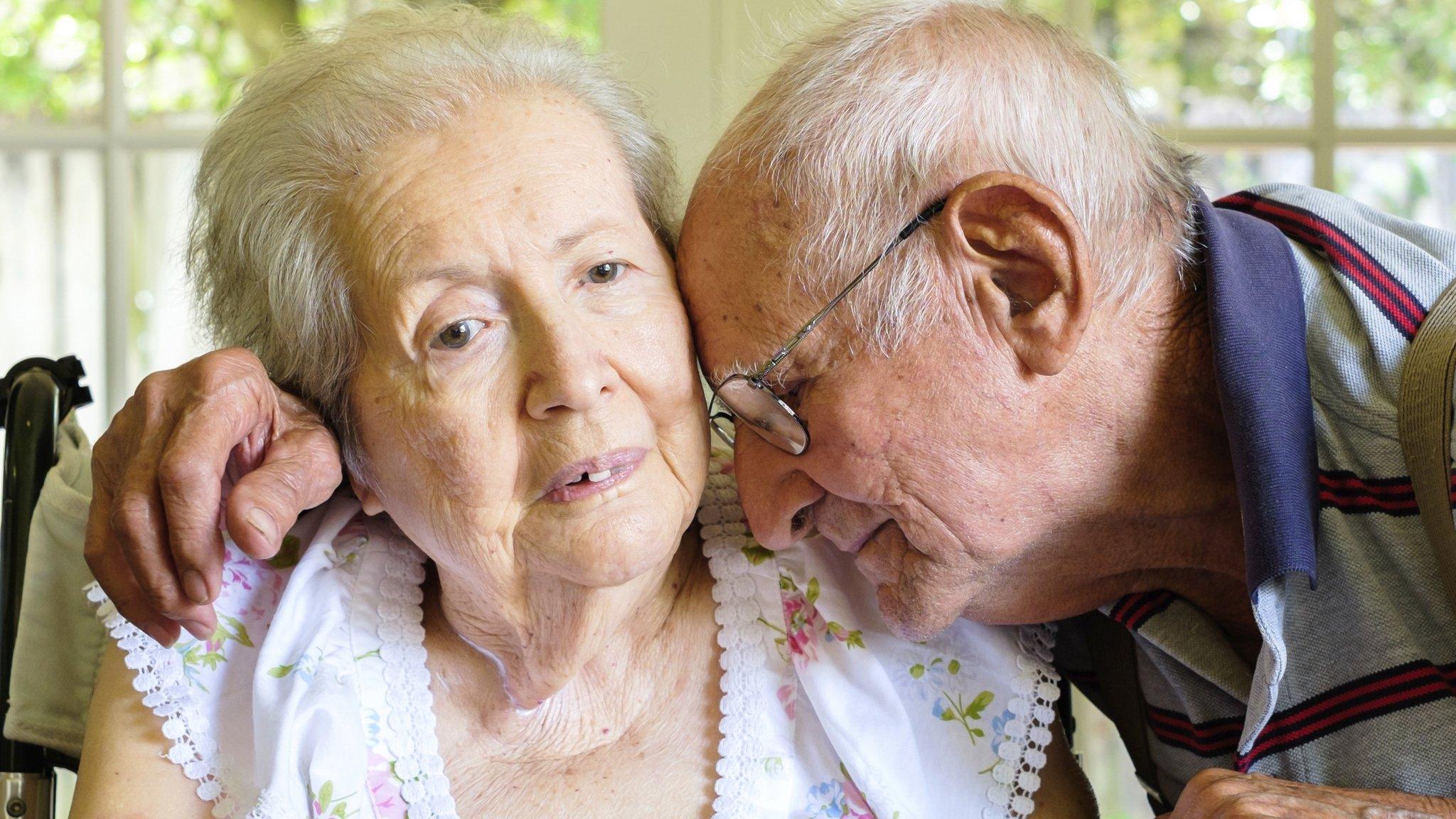
- Published10 December 2013
